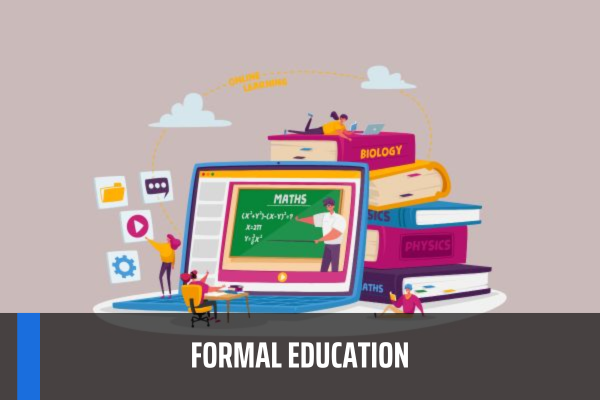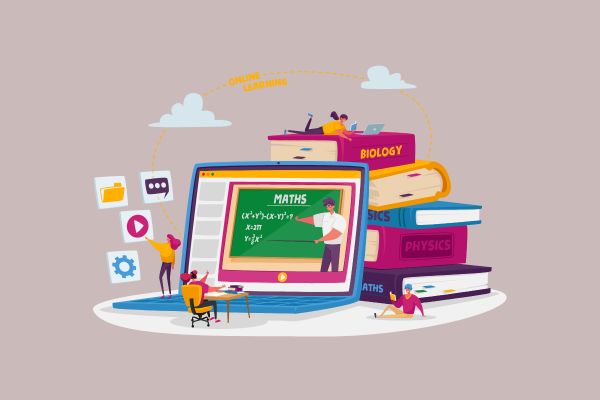What is formal education? Is the formal education belong to the national education system in Vietnam?
What is formal education in Vietnam?
Pursuant to Clause 1, Article 5 of the Law on Education 2019 stipulates as follows:
“Formal education” means cohort-based education in educational institutions to implement a certain educational programme. It is established following the goals of each educational level and qualification, and the learners are issued degrees/diplomas of the national educational system.
Accordingly, formal education means cohort-based education in educational institutions to implement a certain educational programme. It is established following the goals of each educational level and qualification, and the learners are issued degrees/diplomas of the national educational system.

What is formal education? Is the formal education belong to the national education system in Vietnam?
Is the formal education belong to the national education system in Vietnam?
Pursuant to Clause 1, Article 6 of the Law on Education 2019, it is stipulated as follows:
The national educational system
1. The national educational system is an open, transferrable educational system consisting of formal education and continuing education.
2. Educational levels and training qualifications of the national educational system include:
a) Preschool education including junior kindergartens (for children aged 03 – 36 months) and senior kindergartens (for children aged 3 – 5 years);
b) General education with primary education, lower secondary education, and upper secondary education;
c) Vocational education and training at elementary-level, intermediate-level, or college-level and other vocational training programmes;
d) Higher education with university education, master education and doctoral education.
3. The Prime Minister shall make decisions on the approval of the structural framework of the national educational system and the Vietnamese Qualifications Framework; stipulate the training duration, standards of each training level, the minimal learning quantity for qualifications of vocational education and higher education.
4. Within the scope of their duties and authorities, the Minister of Education and Training and Minister of Labour - War Invalids and Social Affairs shall provide for the entrance requirements of college-level and university-level pedagogical and health professions.
Thus, the formal education belongs to the national education system.
Educational levels and training qualifications of the national educational system include:
- Preschool education including junior kindergartens (for children aged 03 – 36 months) and senior kindergartens (for children aged 3 – 5 years);
- General education with primary education, lower secondary education, and upper secondary education;
- Vocational education and training at elementary-level, intermediate-level, or college-level and other vocational training programmes;
- Higher education with university education, master education and doctoral education.
The Prime Minister shall make decisions on the approval of the structural framework of the national educational system and the Vietnamese Qualifications Framework; stipulate the training duration, standards of each training level, the minimal learning quantity for qualifications of vocational education and higher education.
Within the scope of their duties and authorities, the Minister of Education and Training and Minister of Labour - War Invalids and Social Affairs shall provide for the entrance requirements of college-level and university-level pedagogical and health professions.
What are the requirements on contents and methods of formal education in Vietnam?
Pursuant to Article 7 of the Law on Education 2019, it is stipulated as follows:
Requirements on contents, methods of education
1. Contents of education must ensure the basic, comprehensive, practical, modern, systematic and up-to-date characteristics; with importance attached to ideological, ethical and civic consciousness education; preserving and developing the good traditions and the national cultural identity, absorbing the essence of the mankind culture; and suitable with the physical, intellectual and psycho-physiology development of various age groups and abilities of learners.
2. Methods of education must be scientific and bring into full play the activeness, consciousness, self-motivation and creative thinking of learners; foster self-study and cooperative abilities, practical ability, learning eagerness and the will to advance forward.
Accordingly, the content and educational methods in the formal education system must meet the following requirements:
- Contents of education must ensure the basic, comprehensive, practical, modern, systematic and up-to-date characteristics; with importance attached to ideological, ethical and civic consciousness education; preserving and developing the good traditions and the national cultural identity, absorbing the essence of the mankind culture; and suitable with the physical, intellectual and psycho-physiology development of various age groups and abilities of learners.
- Methods of education must be scientific and bring into full play the activeness, consciousness, self-motivation and creative thinking of learners; foster self-study and cooperative abilities, practical ability, learning eagerness and the will to advance forward.
LawNet
